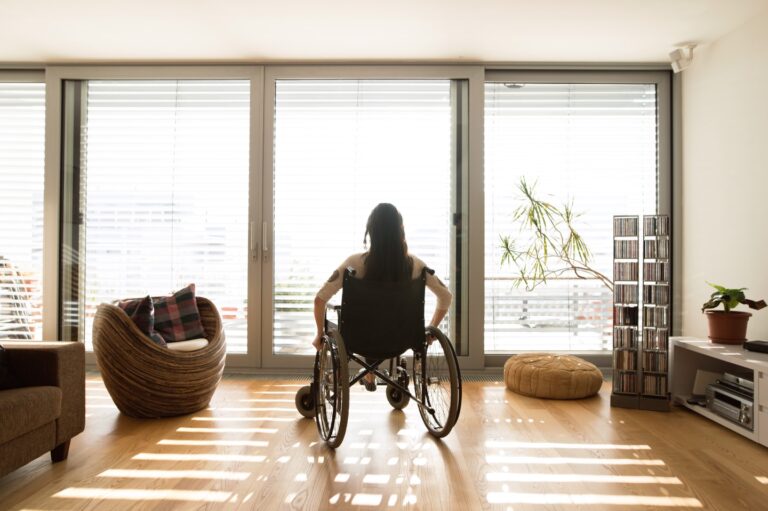
I need a carer – What should I do?
Following a catastrophic injury, it is very common for a person to need support that exceeds what their family and friends can provide. For someone that was previously independent and maintained privacy in their own homes and day to day living this can feel overwhelming. Formal care packages can range from support needed for a couple of hours to requiring 24-hour care.
The process of implementing a care package can be daunting and there are different options available. In recent months this has also become more topical, which will be discussed further below.
In this blog with Kerry Tomlinson of Integrated Case Management, we discuss the options available and benefits. We also explore how traditional benefits/preferences in recent months may be changing.
What are the options available for care?
How you proceed may depend on the care that you need and your circumstances. If you or your loved one is already at home and there are no time pressures and/or 24-hour care is not needed, the preferred option for many of our clients is to directly employ a carer.
Ensuring that you have a Case Manager that is experienced in recruitment will be beneficial as they can talk through your options and will know how to prepare a job description. They will be able to place the advert and support you reading through the CVs, and shortlisting people for interview. Employing a care team directly gives you more choice and control over who cares for you and what tasks they do but as their employer you have legal responsibilities. This means having an employment contract, providing a pension, sick pay, and holiday pay. If the carer is unwell, you are responsible for providing alternative care.
The alternative is to use a care agency. Using a care agency, means that the agency has the legal responsibilities and is the employer. They have the duty to provide the carer and can in times of sickness find an alternative carer. Agency care can be more suited to people that need a large package of care quickly, for instance if someone is being discharged from hospital. Agency care can also be extremely beneficial for those people that have a nursing element to their care. Over the years, Kerry has supported her clients to develop care packages to suit their needs and will work closely with nursing led care agencies to ensure her clients get the expertise they need to manage their care. Agency care can be incredibly useful if you need a period of time to assess fully what levels of care that you need. In catastrophic injuries, where a person’s level of independence changes over night, there is a period of adjustment to come to terms with these changes. Using agency care in these circumstances can really help set up a foundation of how you want your future care to be as shifts can be tweaked to suit the person needing the care, changing times of shifts, number of carers needing for the shifts, changing the skill set of the care team until you have the right fit for you and/or your loved one. The right agency care can offer flexibility.
What option should I select?
Both options have pros and cons; Using an agency means you pay more, but don’t need to worry about the paperwork and legal requirements. It can offer you greater flexibility to change your care whilst you are adapting to the changes the injury has caused. It can provide support short term whilst you decide what you need.
Agency care can often work best for people needing a large package of care due to a sudden change in circumstances and works very well for a person needing an element of nursing intervention due to for example:
- risk of pressure sores
- development of epilepsy
- complex medication regime
- airway/oxygen support
Directly employing carers can be much better suited to when a person wants or needs to slowly build up their care. It allows the person needing the care to get to know their carer through a graded process. Kerry advises that when she is recruiting for directly employed care this is a slower process. Kerry recommends to her clients that they work through the process of a formal interview followed by an informal meet and greet, perhaps meeting over a tea or coffee to see if you feel this person will be a good fit for you. Directly employed care can be the most suitable for parents with a disabled child where the parent wants to provide the majority of care but realises that they need extra support at night times or in the mornings/after school when parents often have work commitments and other children to care for. Directly employed care has more responsibilities but these can be manged on your behalf by your Case Manager and their HR team, and you can be as involved or not involved as you want to be. Directly employed care can be more cost-effective in the long term and gives more control. For many of the clients we work with they go on to have long term enduring working relationships with the carers they directly employ.
Direct recruitment is more suited to longer term care packages once the initial needs for care have been established.
What are the current challenges in practice?
Kerry explains that the care industry is still going through a period of change. At the end of the lockdowns in 2021, the care sector was very different to how it was before 2020. Many people that had traditionally worked in the care industry pre Covid moved to other sectors of work, including sales and delivery driving which has had an impact on wages. Ensuring our clients had support when they or members of their care team were isolating required ongoing rapid response to ensure that our clients weren’t left without support. However, I am fortunate to report that at a time when we saw so much suffering in the media due to covid, my clients maintained excellent levels of care during this time and the care teams I manage all pulled together to help our clients.
What impact has Covid had on packages and is there any future proofing that is required?
Kerry commented: – the pandemic has brought about many changes, there is a national recognition that carers’ wages and conditions should reflect the hard work and support they offer their clients.
We are all much more mindful of infection control and assessing potential risk to our clients. During the first lockdown there was little advice about clients needing care in their own homes and the guidance about private care teams was a work in progress.
During this time, I took to risk assessing each of my clients’ situations individually. I assessed which carers held other jobs, for instance in care homes or hospital settings and in consultation with my clients and their families stood them down from caring for my clients to reduce risk of transmission. For care team using public transport, we set up alternative ways of getting them to and from work. We also assessed who our carers were living with to ensure we could minimise risks of cross infections. Some families stood down all formal hands-on care, so we moved the carers to completing other tasks such as completing the client’s shopping tasks, collecting medication and ordering PPE whist I supported family members. Other families kept all their care team in post, so their needs were different.
This period in history changed how I worked. When we first went in lockdown in March 2020, I along with my colleagues were really worried about the safety of our clients and not being able to visit them. Like most of society, we had a sudden need to learn how to Zoom and use technology to keep in touch, reassure and support our clients. Within a few weeks, team meetings and goal planning became part of our days and at least once a week I was dialling in with a client and their care support to complete a virtual session, which ranged from crafting salt dough or making home-made sausage rolls, to music therapy, to messy play.
I also worked more flexibly so that clients and their families could contact me if they were worried about something and there was a crisis for instance with PPE. We had an on-call system in place during the first lockdown, so our clients were always able to speak to one of us for case management support. Despite not being able to visit clients, I was still able to support and manage the care teams that they had to ensure as best as we could that our clients continued to have meaningful care.
What role do case managers play in care packages?
Kerry said that her role as case manager is to support organise, recruit, and set up formal care packages. The process starts with discussing with our clients the type of care they think is best for them, then our job as case managers is to organise this care. We help in these ways:
Recruitment
- discussing what care they need and when
- working out shift patterns and days – this is essential for the job advert!
- drafting a job advert and job description
- placing the advert online
- referring to an agency if this is the better option
- supporting our client to meet Agency Coordinator or Nurse Team Leader.
- Shortlisting potential candidates
- Arranging interviews
- Preparing interview questions
- Arranging follow up meetings – I encourage my clients to meet potential candidates several times before offering them a job.
- Arranging contracts of employment with our HR team
- Arranging training as required, this can be administration of meds, or training in the injury that the client has to moving and handling training. Whatever skills the care team need to have to support our clients, they are trained by us to do this.
Managing the care team
- Arranging the induction of new staff, what is expected of them, what the procedures are required to work with our client – this ranges from filling out timesheets to requesting annual leave. I also specifically gain my client’s wishes about having people in their home – shoes on/shoes off. Where the carer takes their breaks, what parts of the house the care team are welcome in. In my experience of managing good care, these house rules are essential from the outset as working in someone’s home is a skill; to be present and helpful without being overbearing. We all live in different ways, and I have learnt over the years, never to assume other peoples’ ways of living, what suits one family might not suit another!
- Ongoing support – reviewing care notes, arranging regular supervision, and training to ensure that the formal care team are offering the right support and that they are supported.
- Liaison with the client’s legal team; to feedback on the levels of care needs, changes in need as well as managing payroll and expenses due to having formal care such as purchasing a laptop or stationary.
- Acting as an advocate for the client, their family, and the care team if any difficulties arise. Sometimes this can be something small that is causing niggles, such as a use of mobile phones whilst at work, but in some circumstances, it can be to deal a more serious issue such as work performance issues and/or a breakdown in working relationships.
Do you have any views as to whether case management will continue to exist in its current format? Has covid changed things e.g. Zoom and will that stay?
Kerry said “in my experience, case management will always be a much-needed support for a person who has experienced a catastrophic injury. However, how we deliver that service has changed for all of us. I think we have all learnt new skills during this time that benefits our clients. I certainly carry out a lot more virtual calls than I ever did before the pandemic. Before the pandemic it was either home visits or telephone calls. Now it is a combination of home visits, Zoom calls and telephone calls, whatever is best for my clients.”
“If I need to visit someone at home, whether to carry out an assessment, review something in person or offer real life support for a client that is struggling I visit. If a team of professionals need to discuss goal planning or an outcome that is needed for my client then this is often a virtual meeting which is much more cost effective. Being able share a screen and look at architectural plans when I am in Surrey, the Architect is in Manchester and the Deputy is in Leeds is a great development. I hope that we all maintain this way of working flexibly to suit our clients.”










